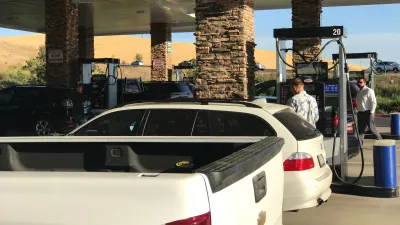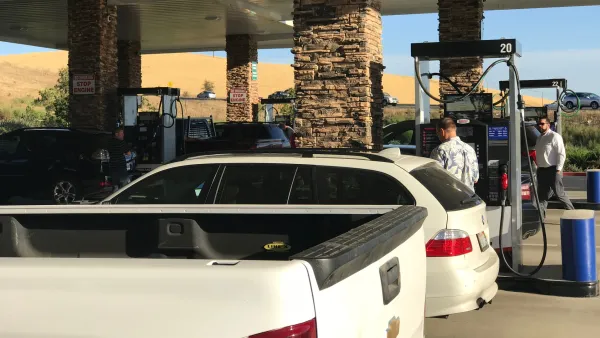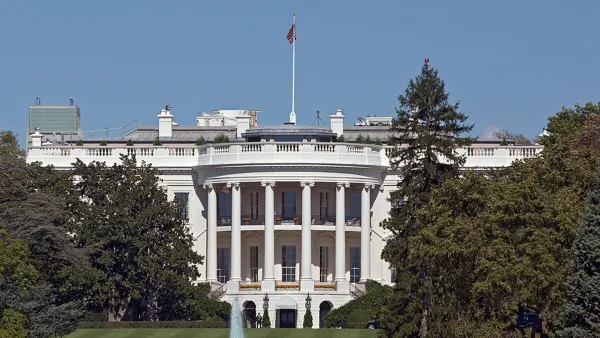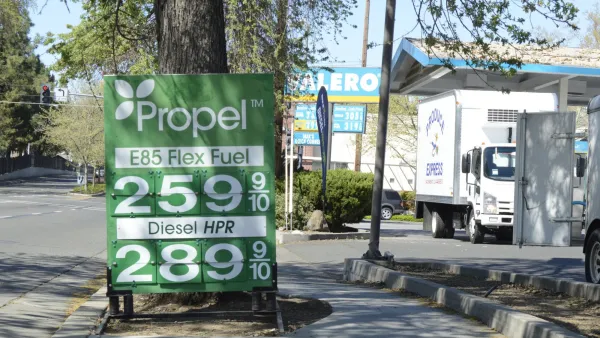The official case for repealing car fuel-economy rules is so full of errors it will be hard to defend in court.

Robinson Meyer shares details of the curious case of the Trump administration's attempt to appeal car fuel-economy standards put in place during the Obama administration.
The Trump administration’s official case for repealing car fuel-economy rules is riddled with calculation mistakes, indefensible assumptions, and broken computer models, according to economists, environmental groups, and a major automaker. The errors may seriously endanger the rule, hampering the White House’s ability to prove the proposal’s benefits exceed its costs and raising questions about whether it can survive an almost inevitable court challenge.
The mistakes range in scope from the comical to the bizarre, from the obviously accidental to the how-did-they-miss-that. In one case, federal employees have forgotten to divide a crucial figure by four. In another, officials have assumed that raising the cost of cars will lead more people to buy them, a violation of the principle of supply and demand. In a third case, the proposal asserts that freezing fuel-economy standards for new cars will lead the owners of old cars to drive their vehicles less.
What's more, every single error seems to tilt the analysis in the Trump administration's favor, according to Meyer's sources. Mistakes like that will make it very difficult to support the Trump administration's proposal when it inevitably faces a lawsuit.
In some cases, the mistakes are so large—and so central to the rule’s legal justification—that remedying them may destabilize the entire argument for the proposal. Public documents also make it clear that the Trump administration knew about some of the errors before the rollback was published.
Meanwhile, General Motors and Honda have broken ranks from the previous universal support for the Trump administration's moves to undo the Obama-era fuel economy rules. Ryan Beene and John Lippert report in a separate article:
General Motors Co. plans to propose that instead of opposing California’s so-called zero emission vehicle sales mandate, federal regulators should instead embrace a nationwide electric-car sales program starting in 2021. Honda Motor Co., meanwhile, took exception to Trump’s proposed freeze on mileage standards and called for steadily increasing requirements to continue.
FULL STORY: The Trump Administration Flunked Its Math Homework

National Parks Layoffs Will Cause Communities to Lose Billions
Thousands of essential park workers were laid off this week, just before the busy spring break season.

Retro-silient?: America’s First “Eco-burb,” The Woodlands Turns 50
A master-planned community north of Houston offers lessons on green infrastructure and resilient design, but falls short of its founder’s lofty affordability and walkability goals.

Delivering for America Plan Will Downgrade Mail Service in at Least 49.5 Percent of Zip Codes
Republican and Democrat lawmakers criticize the plan for its disproportionate negative impact on rural communities.

Test News Post 1
This is a summary

Test News Headline 46
Test for the image on the front page.

Balancing Bombs and Butterflies: How the National Guard Protects a Rare Species
The National Guard at Fort Indiantown Gap uses GIS technology and land management strategies to balance military training with conservation efforts, ensuring the survival of the rare eastern regal fritillary butterfly.
Urban Design for Planners 1: Software Tools
This six-course series explores essential urban design concepts using open source software and equips planners with the tools they need to participate fully in the urban design process.
Planning for Universal Design
Learn the tools for implementing Universal Design in planning regulations.
EMC Planning Group, Inc.
Planetizen
Planetizen
Mpact (formerly Rail~Volution)
Great Falls Development Authority, Inc.
HUDs Office of Policy Development and Research
NYU Wagner Graduate School of Public Service





























